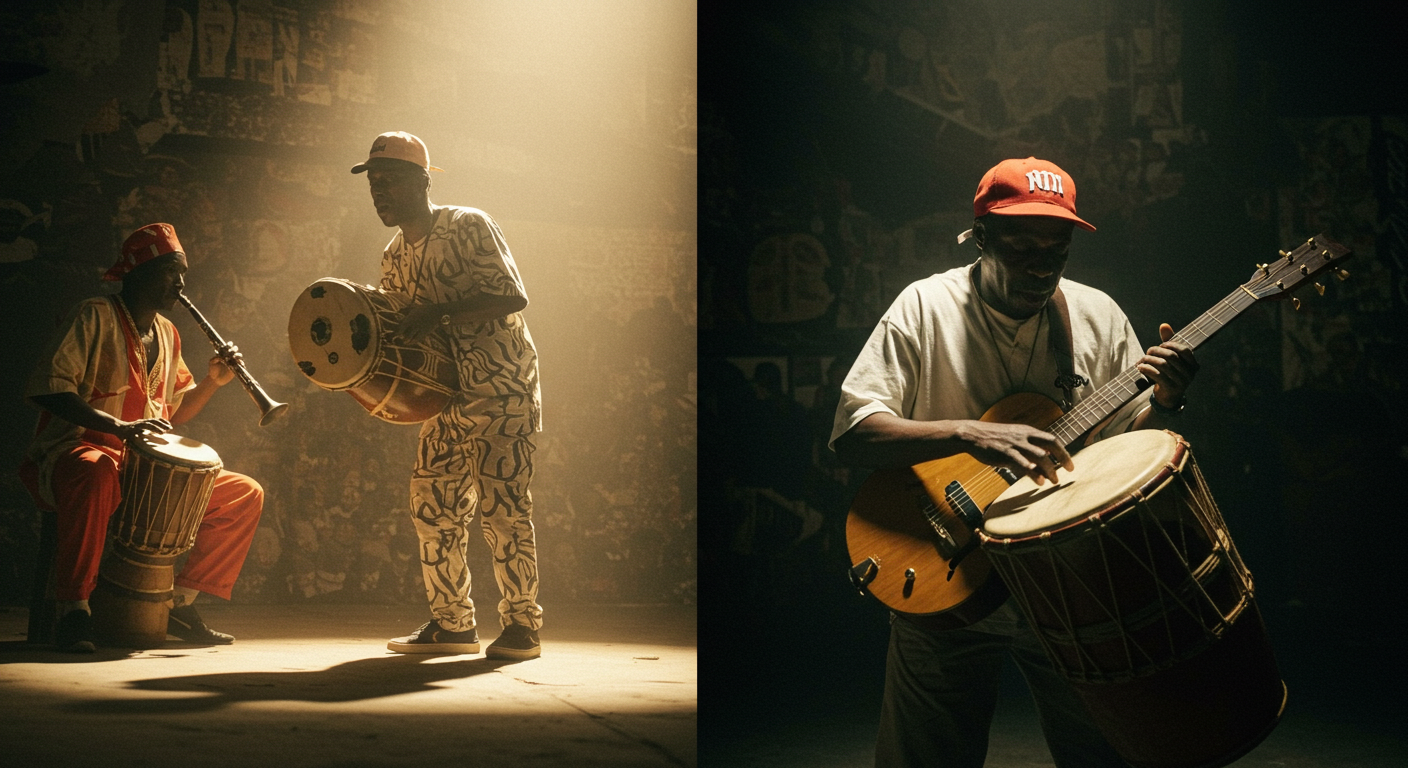Africa’s musical evolution tells a story deeper than entertainment—it is a sonic chronicle of migration, resistance, celebration, and transformation. From the palm wine-scented breezes of coastal West Africa to the gritty pulse of urban Lagos and Johannesburg, African music genres have blossomed through cross-cultural fertilization. In this article, we trace the path from Highlife—one of Africa’s earliest popular genres—to the rise of African Hip Hop, exploring how these styles not only shaped the continent’s identity but also influenced global music.
Highlife: The Sound of West African Sophistication
Highlife music was born in the early 20th century, emerging from Ghana (then the Gold Coast) as a sophisticated blend of traditional Akan rhythms, colonial brass bands, and European dance music. It got its name from the affluent elite who could afford to attend the clubs and ballrooms where this new sound was played. Yet Highlife quickly outgrew its bourgeois roots and evolved into a people’s music—a soundtrack to independence movements and post-colonial optimism.
Highlife spread to Nigeria, Sierra Leone, Liberia, and beyond, giving rise to subgenres like Igbo Highlife and Ghanaian Burger Highlife. Artists such as E.T. Mensah, Victor Olaiya, Rex Lawson, and Dr. Sir Warrior helped localize the genre with indigenous languages, percussion styles, and storytelling techniques.
By the 1960s and 70s, Highlife became an agent of social commentary, used to critique corruption and highlight social issues, laying the ideological groundwork for future protest music in Africa.
Afrobeat: The Political Rebellion in Rhythm
Highlife’s fusion of tradition and modernity gave birth to Afrobeat in the late 1960s, pioneered by Fela Anikulapo Kuti. Inspired by Highlife, American jazz, funk, and the Black Power movement, Afrobeat became the voice of resistance. Fela’s music combined Yoruba spiritualism with scathing political critique, using his Kalakuta Republic and Afrika Shrine as cultural battlegrounds.
Afrobeat carried the torch of Highlife’s intellectualism but added raw, unfiltered rebellion. It shaped African music’s global image, influencing artists like Tony Allen, Seun Kuti, and later Burna Boy, whose Grammy-winning sound still draws heavily from this legacy.
Hip Hop’s Arrival: Local Voices, Global Beats
In the 1980s and 1990s, African youth began to embrace Hip Hop, first through American imports and then through homegrown innovation. Cities like Dakar, Johannesburg, Nairobi, and Lagos became centers of lyrical expression. But African Hip Hop was not a copy—it was a translation. Local dialects, proverbs, and realities found their way into bars and rhymes.
- Senegal’s Positive Black Soul blended Wolof lyrics with Pan-African consciousness.
- South Africa’s Prophets of Da City fused kwaito and Hip Hop to fight apartheid’s cultural residue.
- Nigeria’s Mode 9, MI Abaga, and Phyno used Hip Hop to address politics, street life, and identity.
Hip Hop became a democratic genre—accessible, performative, and deeply connected to community storytelling. It gave a new generation the mic, encouraging discussions about everything from education and elections to love and spirituality.
Genre Cross-Pollination: The Future Is Fusion
The beauty of Africa’s musical evolution is its refusal to stay static. Today’s musical landscape is a genre-blending kaleidoscope—Afrobeats (not to be confused with Afrobeat), Amapiano, Alté, and other styles borrow from the legacies of Highlife, Afrobeat, and Hip Hop.
Modern artists like Wizkid, Black Sherif, Blaqbonez, AKA, and Sampa the Great often cite multiple influences, mixing the past and the present. Digital platforms and global collaborations have only accelerated this process.
A Musical Identity in Motion
From the elegant horns of Highlife to the hard-hitting punchlines of African Hip Hop, the continent’s musical journey mirrors its social and political tides. These genres have been more than just sound—they’ve been lifelines, battle cries, love letters, and history books. Africa’s music is a living archive of its soul, and as long as the beat goes on, the continent’s voice will keep rising, reshaping global music with every note.



